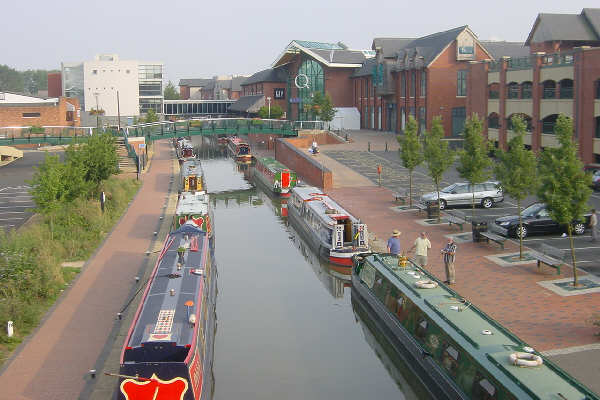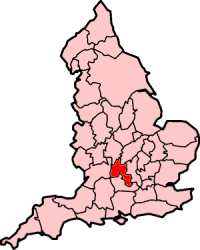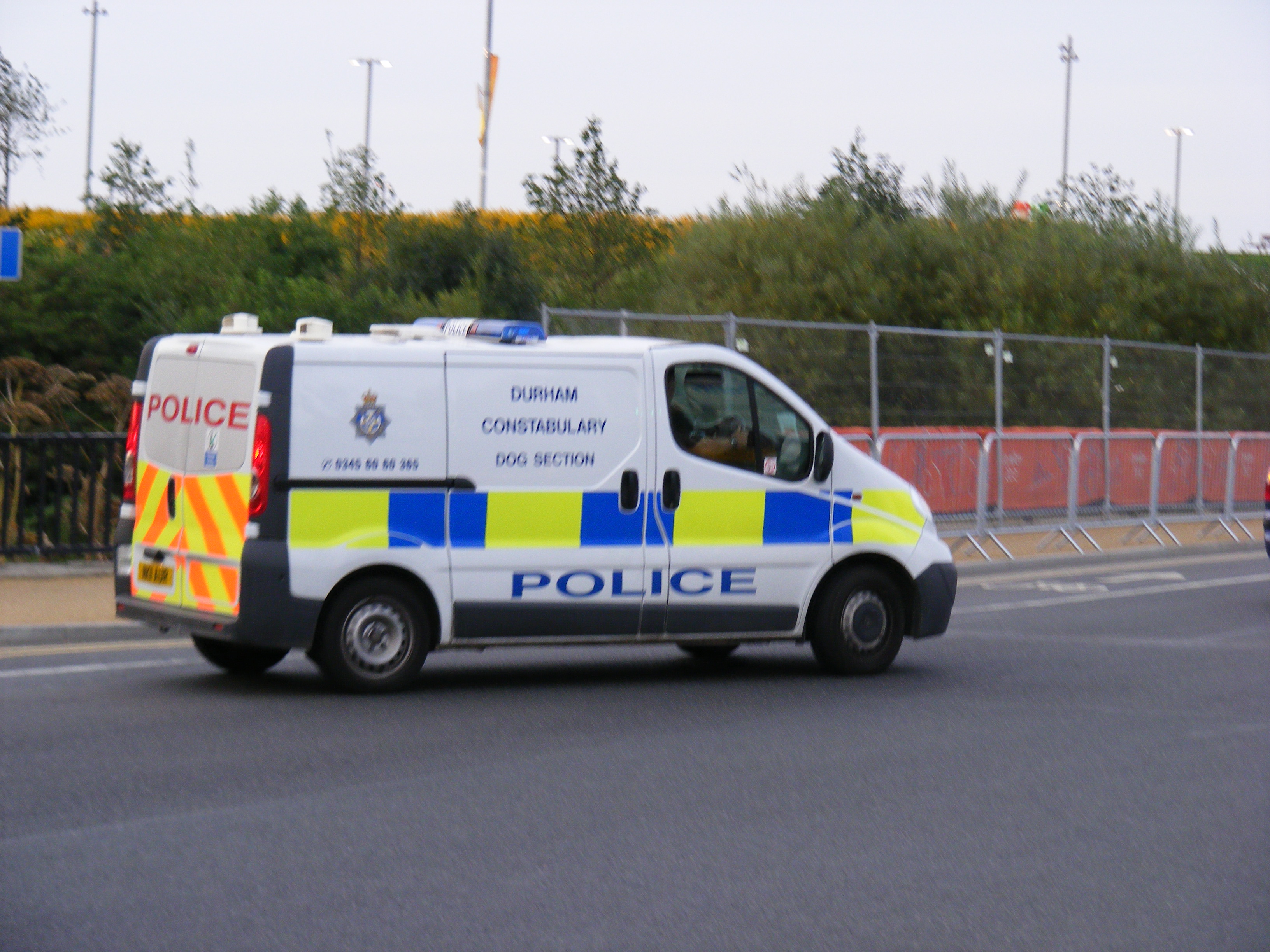|
Oxfordshire County Constabulary
Oxfordshire Constabulary was the Home Office police force for the county of Oxfordshire, England, excluding the city of Oxford itself, from 1857 until 1968. History Oxfordshire Constabulary was established in 1857. It absorbed Chipping Norton Borough Police and Henley Borough Police immediately. Banbury Borough Police was also amalgamated into the force 69 years later in 1925. In 1965 it had an establishment of 423 and an actual strength of 297. On 1 April 1968 Oxfordshire Constabulary was amalgamated with Buckinghamshire Constabulary, Berkshire Constabulary, Oxford City Police and Reading Borough Police to form Thames Valley Constabulary. Chief Constables *1857–1888: Captain Charles Mostyn Owen *1888–1917: Lieutenant-Colonel the Hon. Edward Alexander Holmes à Court (died 1923) *1917-1920: Major Douglas Roberts (died 1920) *1921–1940: Captain Ernest Kennaway Arbuthnot *1940–1944: Colonel Sir Eric St Johnston (afterwards Chief Constable of Durham, 1944–50) *1945–1954: ... [...More Info...] [...Related Items...] OR: [Wikipedia] [Google] [Baidu] |
Banbury OxfordRd PoliceOffice Plaque
Banbury is an historic market town and civil parish on the River Cherwell in Oxfordshire, South East England. The parish had a population of 54,335 at the 2021 Census. Banbury is a significant commercial and retail centre for the surrounding area of north Oxfordshire and southern parts of Warwickshire and Northamptonshire which are predominantly rural. Banbury's main industries are motorsport, car components, electrical goods, plastics, food processing and printing. Banbury is home to the world's largest coffee-processing facility (Jacobs Douwe Egberts), built in 1964. The town is famed for Banbury cakes, a spiced sweet pastry. Banbury is located north-west of London, south-east of Birmingham, south-east of Coventry and north-west of Oxford. Toponymy The name Banbury may derive from "Banna", a Saxon chieftain said to have built a stockade there in the 6th century (or possibly a byname from meaning ''felon'', ''murderer''), and / meaning ''settlement''. In Old English, ... [...More Info...] [...Related Items...] OR: [Wikipedia] [Google] [Baidu] |
Thames Valley Constabulary
Thames Valley Police is the territorial police force responsible for policing the Thames Valley region, covering the counties of Berkshire, Buckinghamshire and Oxfordshire in South East England. It is the largest non-metropolitan police force in England and Wales, covering and a population of 2.42 million people. History Prior to the Municipal Corporations Act 1835 there were ancient ways of keeping law and order through Parish constables or quasi police bodies who conducted a wide range of duties. Modern policing in Thames Valley can be traced back to the 1835 act when a number of boroughs set up police forces. For example Newbury Borough Police were operating as a small police force soon after the passing of the Act. The force was one of around twenty borough forces that were later amalgamated with their county police force. These were Buckinghamshire Constabulary, Oxfordshire Constabulary, Berkshire Constabulary, Reading Borough Police and Oxford City Police founded in 1857 ... [...More Info...] [...Related Items...] OR: [Wikipedia] [Google] [Baidu] |
Government Agencies Established In 1857
A government is the system or group of people governing an organized community, generally a state. In the case of its broad associative definition, government normally consists of legislature, executive, and judiciary. Government is a means by which organizational policies are enforced, as well as a mechanism for determining policy. In many countries, the government has a kind of constitution, a statement of its governing principles and philosophy. While all types of organizations have governance, the term ''government'' is often used more specifically to refer to the approximately 200 independent national governments and subsidiary organizations. The main types of modern political systems recognized are democracies, totalitarian regimes, and, sitting between these two, authoritarian regimes with a variety of hybrid regimes. Modern classification systems also include monarchies as a standalone entity or as a hybrid system of the main three. Historically prevalent forms ... [...More Info...] [...Related Items...] OR: [Wikipedia] [Google] [Baidu] |
Organisations Based In Oxfordshire
An organization or organisation (Commonwealth English; see spelling differences) is an entity—such as a company, or corporation or an institution (formal organization), or an association—comprising one or more people and having a particular purpose. Organizations may also operate secretly or illegally in the case of secret societies, criminal organizations, and resistance movements. And in some cases may have obstacles from other organizations (e.g.: MLK's organization). What makes an organization recognized by the government is either filling out incorporation or recognition in the form of either societal pressure (e.g.: Advocacy group), causing concerns (e.g.: Resistance movement) or being considered the spokesperson of a group of people subject to negotiation (e.g.: the Polisario Front being recognized as the sole representative of the Sahrawi people and forming a partially recognized state.) Compare the concept of social groups, which may include non-organiza ... [...More Info...] [...Related Items...] OR: [Wikipedia] [Google] [Baidu] |
History Of Oxfordshire
The county of Oxfordshire in England is broadly situated in the land between the River Thames to the south, the Cotswolds to the west, the Chilterns to the east and The Midlands to the north, with spurs running south to Henley-on-Thames and north to Banbury. Historically the area has always had some importance, containing valuable agricultural land in the centre of the country and the prestigious university in the county town of Oxford (whose name came from Anglo-Saxon ''Oxenaford'' = "ford for oxen"). Largely ignored by the Romans, it was not until the formation of a settlement at Oxford in the 8th century that the area grew in importance. Alfred the Great was born across the Thames in Wantage, then in Berkshire. The University of Oxford was founded in 1096, though its collegiate structure did not develop until later on. The area was part of the Cotswolds wool trade from the 13th century, generating much wealth, particularly in the western portions of the county in the Oxfords ... [...More Info...] [...Related Items...] OR: [Wikipedia] [Google] [Baidu] |
Defunct Police Forces Of England
Defunct may refer to: * Defunct (video game), ''Defunct'' (video game), 2014 * Zombie process or defunct process, in Unix-like operating systems See also * * :Former entities * End-of-life product * Obsolescence {{Disambiguation ... [...More Info...] [...Related Items...] OR: [Wikipedia] [Google] [Baidu] |
List Of Defunct Law Enforcement Agencies In The United Kingdom
Due to various parliamentary Acts the numbers of law enforcement agencies in the United Kingdom has varied drastically since the Metropolitan Police Act 1829 set up the first modern police force in London. There are currently over 60 law enforcement agencies operating in the United Kingdom. See List of law enforcement agencies in the United Kingdom, Crown Dependencies and British Overseas Territories for these. For former (non-police) law enforcement agencies, see :Defunct law enforcement agencies of the United Kingdom. For defunct police forces, see :Defunct police forces of the United Kingdom England and Wales police forces Abolished before 1889 The County Police Act 1840 allowed for borough police forces to voluntarily amalgamate with county constabularies. *Abingdon Borough Police, to Berkshire *Andover Borough Police (1846, to Hampshire) *Banbury Borough Police, to Oxfordshire *Bodmin Borough Police (1865, to Cornwall) *Bradninch Borough Police (1865, to Devon) *Chipping N ... [...More Info...] [...Related Items...] OR: [Wikipedia] [Google] [Baidu] |
Thames Valley Police
Thames Valley Police is the territorial police force responsible for policing the Thames Valley region, covering the counties of Berkshire, Buckinghamshire and Oxfordshire in South East England. It is the largest non-metropolitan police force in England and Wales, covering and a population of 2.42 million people. History Prior to the Municipal Corporations Act 1835 there were ancient ways of keeping law and order through Parish constables or quasi police bodies who conducted a wide range of duties. Modern policing in Thames Valley can be traced back to the 1835 act when a number of boroughs set up police forces. For example Newbury Borough Police were operating as a small police force soon after the passing of the Act. The force was one of around twenty borough forces that were later amalgamated with their county police force. These were Buckinghamshire Constabulary, Oxfordshire Constabulary, Berkshire Constabulary, Reading Borough Police and Oxford City Police founded i ... [...More Info...] [...Related Items...] OR: [Wikipedia] [Google] [Baidu] |
Chief Constable Of Lincolnshire
Chief may refer to: Title or rank Military and law enforcement * Chief master sergeant, the ninth, and highest, enlisted rank in the U.S. Air Force and U.S. Space Force * Chief of police, the head of a police department * Chief of the boat, the senior enlisted sailor on a U.S. Navy submarine * Chief petty officer, a non-commissioned officer or equivalent in many navies * Chief warrant officer, a military rank Other titles * Chief ''x'' officer, a corporate title in the c-suite * Chief of the Name, head of a family or clan in Ireland and Scotland * Chief engineer, the most senior licensed mariner of an engine department on a ship, typically a merchant ship * Chief mate, or Chief officer, the highest senior officer in the deck department on a merchant vessel * Chief of staff, the leader of a complex organization * Fire chief, top rank in a fire department * Scottish clan chief, the head of a Scottish clan * Tribal chief, a leader of a tribal form of government * Chief, ... [...More Info...] [...Related Items...] OR: [Wikipedia] [Google] [Baidu] |
Chief Constable Of Durham
Durham Constabulary is the territorial police force responsible for policing the council areas of County Durham and Darlington in North East England. It does not cover all of the ceremonial or historic area of Durham, parts of which are covered by the neighbouring forces of Cleveland Police and Northumbria Police. The other neighbouring forces are Cumbria Constabulary to the west and North Yorkshire Police to the south. , the force has 1,168 police officers, 129 special constables, and 131 police community support officers (PCSO). History Durham Constabulary was one of the first county police forces to be set up, established in 1839. The force absorbed Durham City Police (formed in 1836) in 1921, Hartlepool Borough Police (formed in 1851) in 1947, Sunderland Borough Police (formed in 1837) in 1967, and Gateshead Borough Police (formed in 1836) and South Shields Borough Police (formed in 1839) in 1968, when it also lost some of its area to Teesside Constabulary. In 1965, ... [...More Info...] [...Related Items...] OR: [Wikipedia] [Google] [Baidu] |
Eric St Johnston
Sir Thomas Eric St Johnston, CBE, KStJ, QPM, TD (7 January 1911 – 17 March 1986) was Chief Inspector of Constabulary from 1967 until 1970. Early life St Johnston was the son of Thomas Gerald St Johnston (1882–1968) and Ethel Mary Frances Flora St Johnston (née Riley, 1887–1960). St Johnson was educated at Bromsgrove School and Corpus Christi College, Cambridge, where he was a friend of the writer Nigel Balchin. Career St Johnston joined the civilian staff of Scotland Yard; and was admitted a barrister at the Middle Temple in 1934. In 1940 he became Chief Constable of Oxfordshire, in 1944 of the Durham Police and in 1950 of the Lancashire Force. A former Colonel in the Royal Artillery TA, during World War II he was employed at the War Office. He was Director of Administration Administration may refer to: Management of organizations * Management, the act of directing people towards accomplishing a goal: the process of dealing with or controlling things or people. ... [...More Info...] [...Related Items...] OR: [Wikipedia] [Google] [Baidu] |
Reading Borough Police
Reading Borough Police was a police force for the borough of Reading in the United Kingdom. The force was created on 21 February 1836, at which time it had a strength of 30 constables, two sergeants and two inspectors. Towards the end of the 19th century, Reading Borough Police had increased in size to 62 officers. However, the local population had risen to around 60,500, which meant one officer for every 1,000 inhabitants. By the time of the First World War the force had an establishment of 113 officers, however, due to military service only 30 officers were patrolling Reading. The first chief constable was Henry Houlton, a sergeant from the Metropolitan Police, who was appointed in 1839. In 1968, Reading Borough Police were amalgamated with Berkshire Constabulary, Buckinghamshire Constabulary, Oxford City Police, and Oxfordshire Constabulary to form the Thames Valley Constabulary, later known as Thames Valley Police. Officers killed in the line of duty *Detective Constabl ... [...More Info...] [...Related Items...] OR: [Wikipedia] [Google] [Baidu] |








